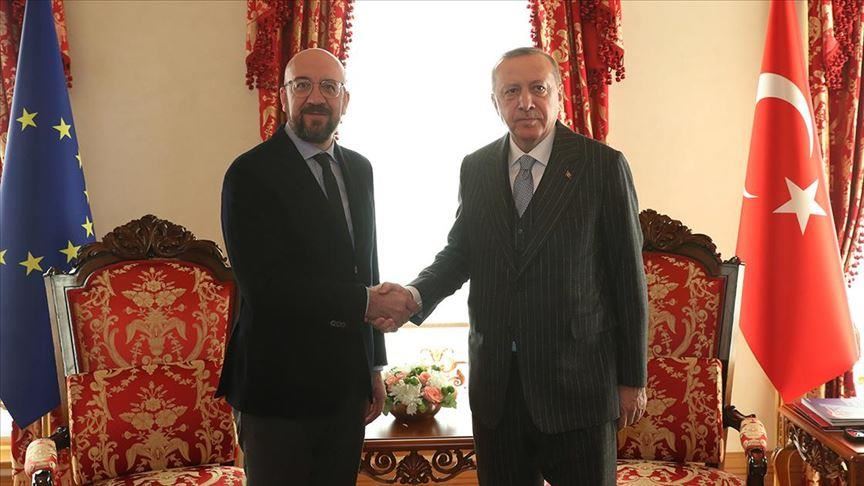
ISTANBUL
Turkey's President Recep Tayyip Erdogan on Saturday received Charles Michel, head of the EU Council in Istanbul, according to diplomatic sources.
The closed-door meeting between Erdogan and Michel was held at the Dolmabahce Palace and lasted for nearly two hours.
Michel's visit marked the first visit to Turkey of the EU's new management since taking office last fall.
The EU Council is the EU's main decision-making body, made up of government ministers from every member state.
“The presidents had a discussion on how the EU and Turkey can work together to de-escalate the situation in the Middle East and in Libya,” the EU Council said in a statement.
Michael welcomed the "constructive language" of Erdogan’s joint statement with Russian President Vladimir Putin on a cease-fire and support for the Berlin process, the statement said.
On Wednesday, Turkish and Russian presidents have urged for a cease-fire in Libya by midnight of Jan. 12.
Since the ouster of late leader Muammar Gaddafi in 2011, two seats of power have emerged in Libya: one in eastern Libya supported mainly by Egypt and the United Arab Emirates and the other in Tripoli, which enjoys the UN and international recognition.
The EU statement said both sides agreed to prevent “a new cycle of violence” in the Middle East through de-escalation and dialogue.
”There is a need for negotiated, political solutions,” it stressed.
On Syria, the statement said the EU understood that Turkey has security concerns with regard to northern and eastern Syria.
“In the context of the EU-Turkey Statement, the EU continues to support projects for refugees and host communities,” it said, adding that schools and hospitals are being built.
Eastern Mediterranean
Michael expressed his concern on the recent memorandum of understanding between Libya and Turkey.
Referring to Turkey’s activities in the Eastern Mediterranean, the statement said that the EU "stands in full solidarity" with the Greek Cypriot side.
In November last year, Turkey and Libya inked a memorandum of understanding on the delimitation of the maritime jurisdiction areas in the Eastern Mediterranean.
In 1974, following a coup aiming at annexation of Cyprus by Greece, Ankara had to intervene as a guarantor power. In 1983, the TRNC was founded.
The decades since have seen several attempts to resolve the Cyprus dispute, all ending in failure. The latest, held with the participation of the guarantor countries -- Turkey, Greece, and the U.K. -- came to an end without any progress in 2017 in Switzerland.
*Writing by Gozde Bayar









